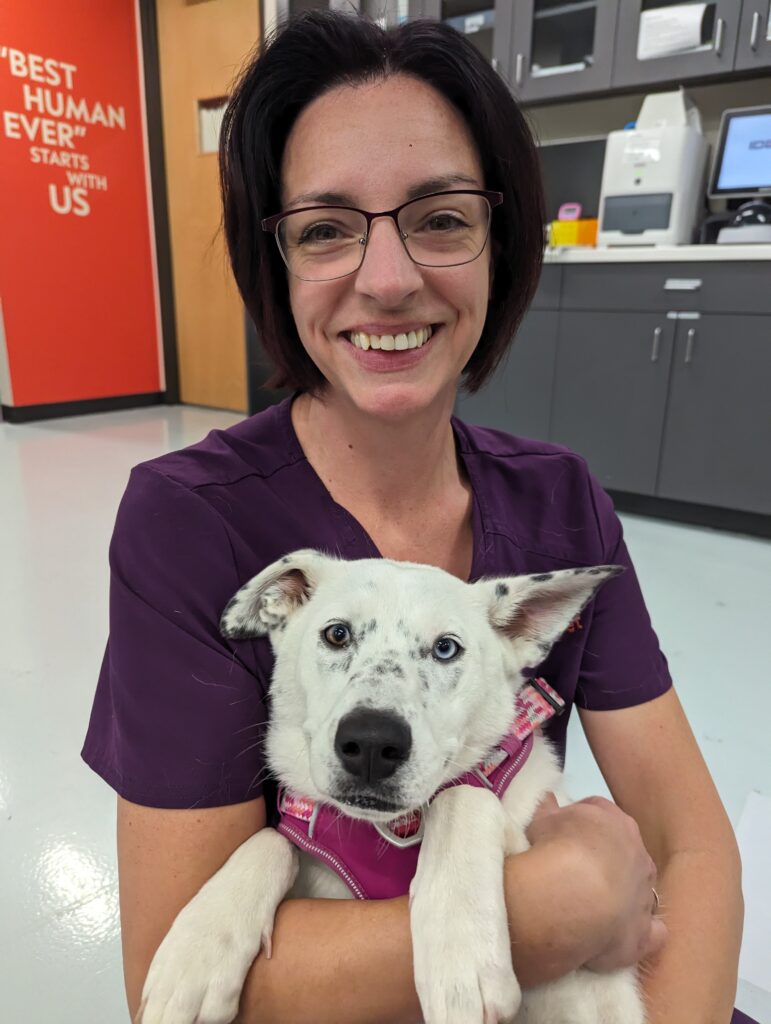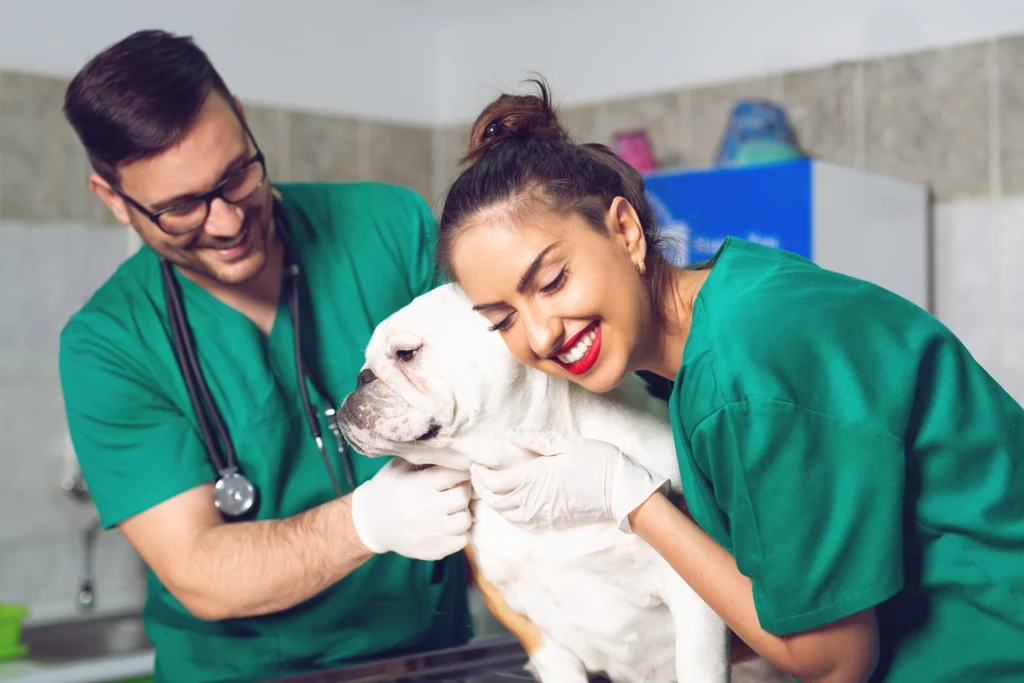
Fear-Free Spay & Neuter Vet Clinic Queen Creek, AZ
Revel Vet is Your Fear-Free Veterinarian in Queen Creek
“Fear Free” is a term used to describe veterinary practices that prioritize the emotional well-being of pets during their visit.
The goal of Fear Free veterinary practices is to reduce fear, anxiety, and stress in pets during their visits to the vet. At Revel Vet, we achieve this through various methods such as using low-stress handling techniques, providing a calm and comfortable environment, and using pheromones and other calming products.
Spaying and neutering is part of a Fear Free veterinary practice, as long as the procedure follows Fear Free protocols. This includes performing pre-operative assessments, providing pre-anesthetic medications, and using appropriate anesthetic and analgesic protocols to minimize pain and stress. Our Revel Veterinarians use appropriate post-operative care and pain management, and provide follow-up support to ensure a successful recovery.

Understanding Spay/Neuter
Spaying and neutering are surgical procedures that involve the removal of the reproductive organs of a pet, and since we’re Revel Vet, we are talking about dogs and cats.
Spaying involves the removal of the ovaries and uterus of a female pet, while neutering involves the removal of the testicles of a male pet. These procedures are performed by a veterinarian and are done under general anesthesia. Veterinarians refer to spaying as ovariohysterectomy and neutering as castration.
Cat Spaying and Neutering in Queen Creek
Removing the ovaries and (usually) the uterus of a female cat helps prevent unwanted pregnancies, eliminates the risk of uterine infections, and reduces the chances of certain reproductive-related cancers. Spaying is typically recommended before a cat’s first heat cycle.
In male cats, neutering involves the removal of the testicles. This procedure helps control aggressive behavior, reduces the likelihood of roaming and marking territory, and eliminates the risk of testicular cancer. Neutering is usually performed around six months of age, but it can be done earlier in some cases.
Dog Spaying and Neutering in Queen Creek
Removing the ovaries and (often) the uterus of a female dog helps prevent unwanted pregnancies, eliminates the risk of uterine infections, and reduces the likelihood of mammary tumors and ovarian cancers. Spaying is typically recommended before a dog’s first heat cycle.
In male dogs, neutering involves the removal of the testicles. This procedure helps control aggressive behavior, reduces the urge to roam and mark territory, and eliminates the risk of testicular cancer. Neutering is generally recommended around six to nine months of age for small to medium breeds and nine to twelve months of age for large and giant breeds, but this should be discussed with your Revel Veterinarian on an individual basis.
What Are the Benefits of Spaying or Neutering My Pet?
Spaying and neutering your pets has medical benefits, such as reducing the risk of certain types of disease and preventing certain behavioral issues.
Namely, neutered male pets are less likely to roam and fight, and spayed female pets are less likely to develop certain types of cancer.
It’s important to note that the appropriate age for spaying and neutering varies depending on the breed and size of the animal, and the best age to spay or neuter your pet should be discussed with your veterinarian.

The Benefits of Altering Your Pet:
- Reducing the risk of certain types of cancer in female pets, such as breast and ovarian cancer
- Preventing certain behavioral issues, such as roaming and aggression in male pets and marking territory in neutered males
- Preventing unwanted pregnancy
- Reducing the risk of certain types of cancer in neutered males, such as testicular cancer
- Preventing certain hormonal-related issues such as pyometra (an infection of the uterus) in spayed females
It is very important to note that spay or neutering procedures will depend on the pet’s breed, individual characteristics, and the owner’s lifestyle. Therefore, it’s important to consult with your veterinarian to decide what is the best option for your pet.
Revel Vet is Queen Creek’s Fear-Free Spay and Neuter Clinic
Choosing a Fear Free veterinary practice in Queen Creek for your pet’s spay or neuter surgery is the best way to ensure that your pet will have a positive, anxiety-free experience with the vet. Our Fear Free approach prioritizes a calm and stress-free environment, gentle handling techniques, and the emotional well-being of animals, which, at the end of the day, promotes faster recovery and reduced complications. Ultimately, a Fear Free approach enhances the entire veterinary experience, making it a compassionate and comforting journey for both pets and their owners, the best humans ever!